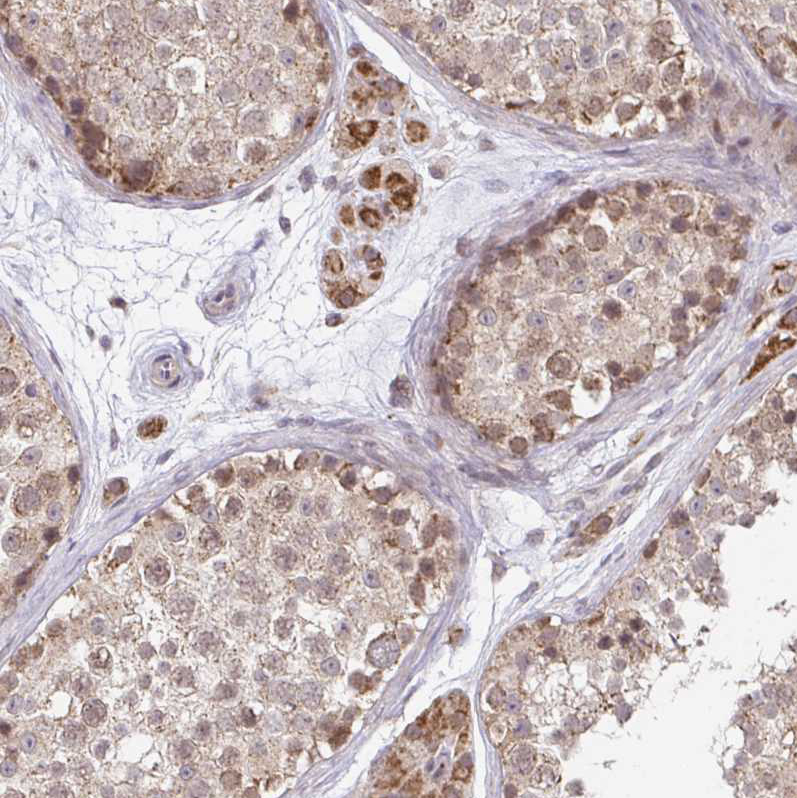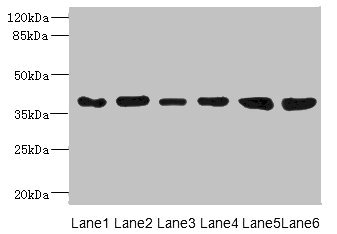
WB analysis of human heart lysate using GTX89675 TIMM50 antibody, Internal. Dilution : 0.5μg/ml Loading : 35μg protein in RIPA buffer
TIMM50 antibody, Internal
GTX89675
ApplicationsWestern Blot
Product group Antibodies
ReactivityHuman
TargetTIMM50
Overview
- SupplierGeneTex
- Product NameTIMM50 antibody, Internal
- Delivery Days Customer7
- Application Supplier NoteWB: 0.5-3microg/ml. *Optimal dilutions/concentrations should be determined by the researcher.Not tested in other applications.
- ApplicationsWestern Blot
- CertificationResearch Use Only
- ClonalityPolyclonal
- Concentration0.50 mg/ml
- ConjugateUnconjugated
- Gene ID92609
- Target nameTIMM50
- Target descriptiontranslocase of inner mitochondrial membrane 50
- Target synonymsMGCA9, TIM50, TIM50L, mitochondrial import inner membrane translocase subunit TIM50, Tim50-like protein, homolog of yeast Tim50
- HostGoat
- IsotypeIgG
- Protein IDQ3ZCQ8
- Protein NameMitochondrial import inner membrane translocase subunit TIM50
- Scientific DescriptionThis gene encodes a subunit of the TIM23 inner mitochondrial membrane translocase complex. The encoded protein functions as the receptor subunit that recognizes the mitochondrial targeting signal, or presequence, on protein cargo that is destined for the mitochondrial inner membrane and matrix. This protein may also play a role in maintaining the membrane permeability barrier, and knockdown of this gene in human cells results in the release of cytochrome c and apoptosis. [provided by RefSeq, Jul 2016]
- ReactivityHuman
- Storage Instruction-20°C or -80°C,2°C to 8°C
- UNSPSC41116161






